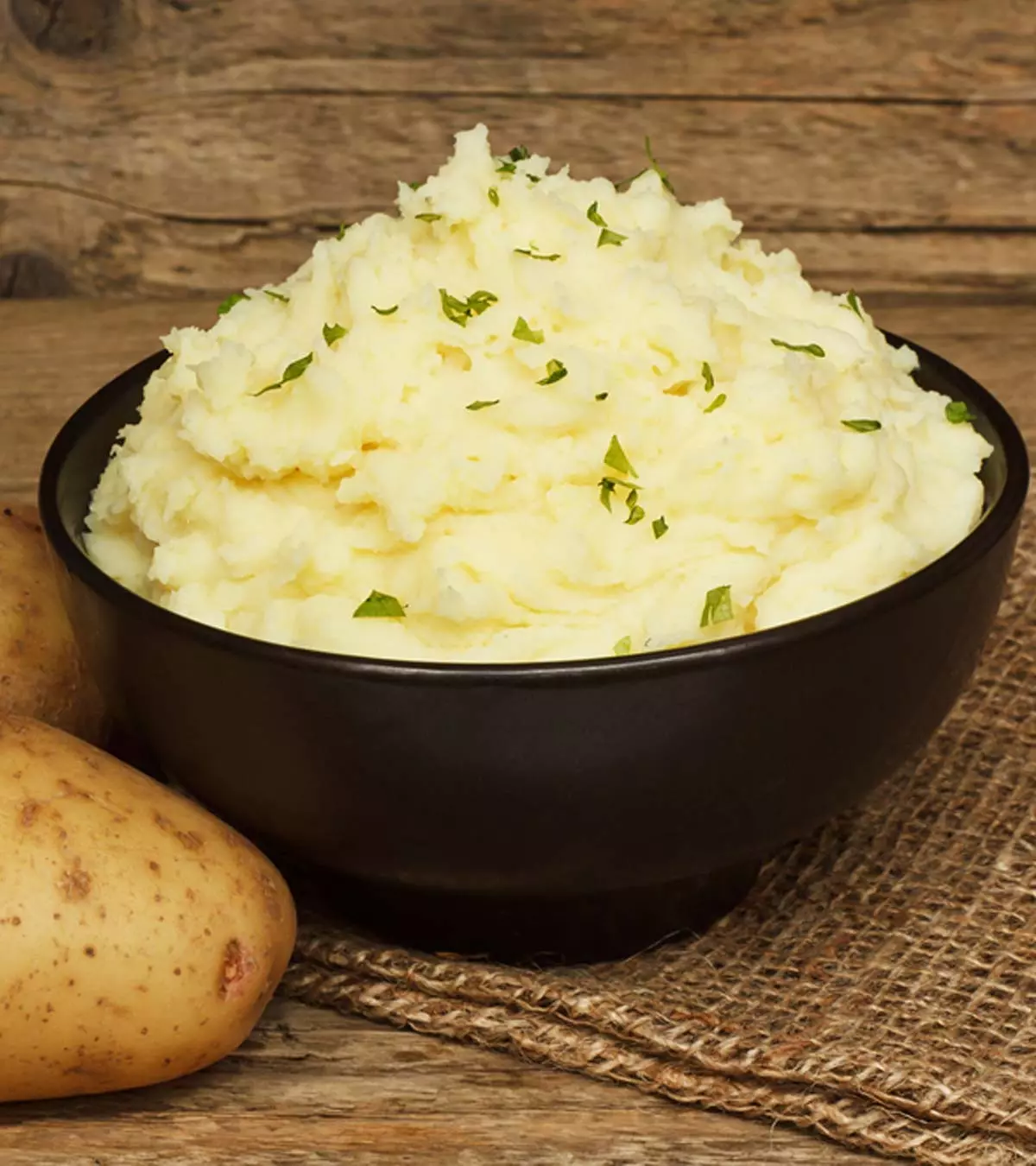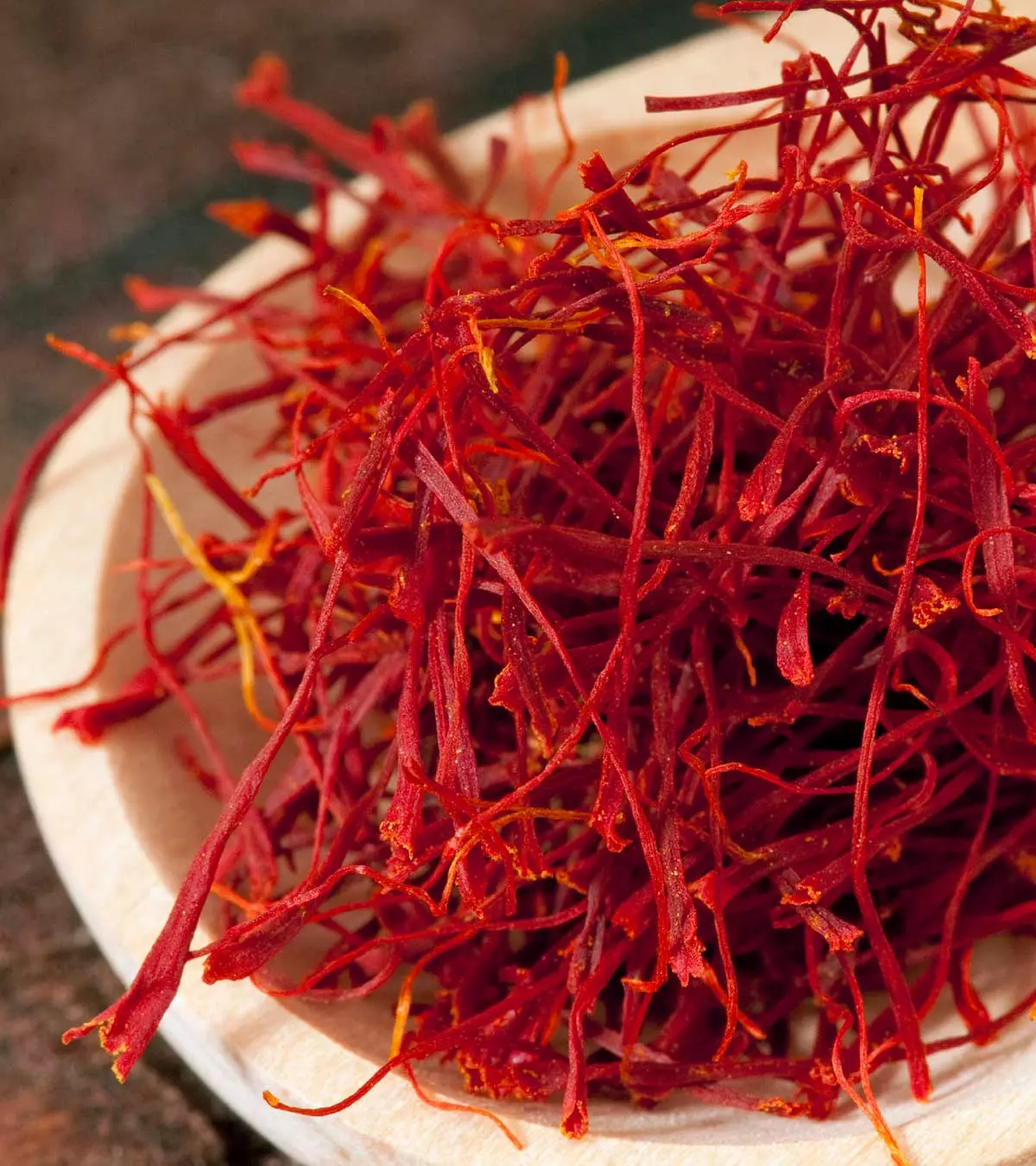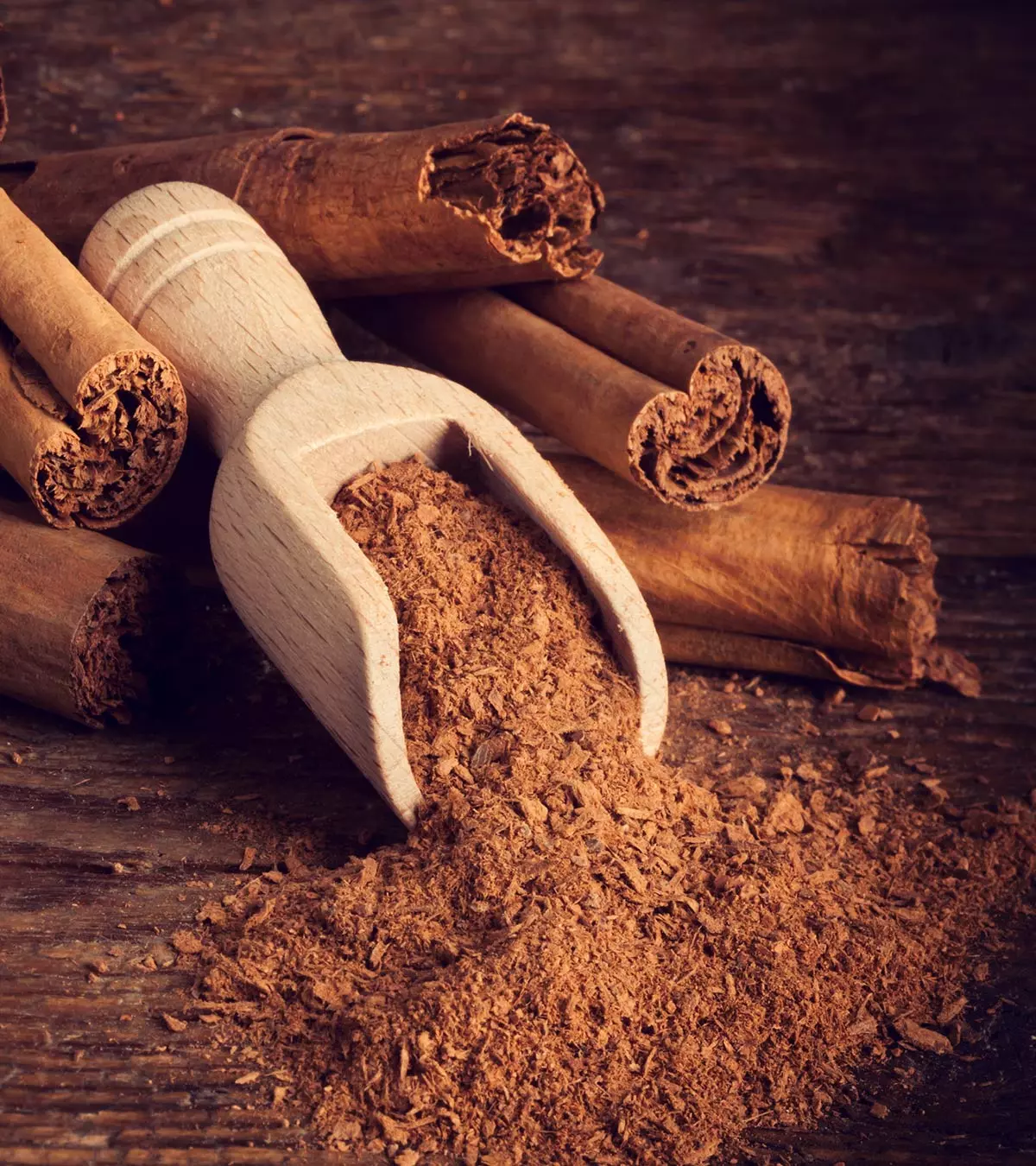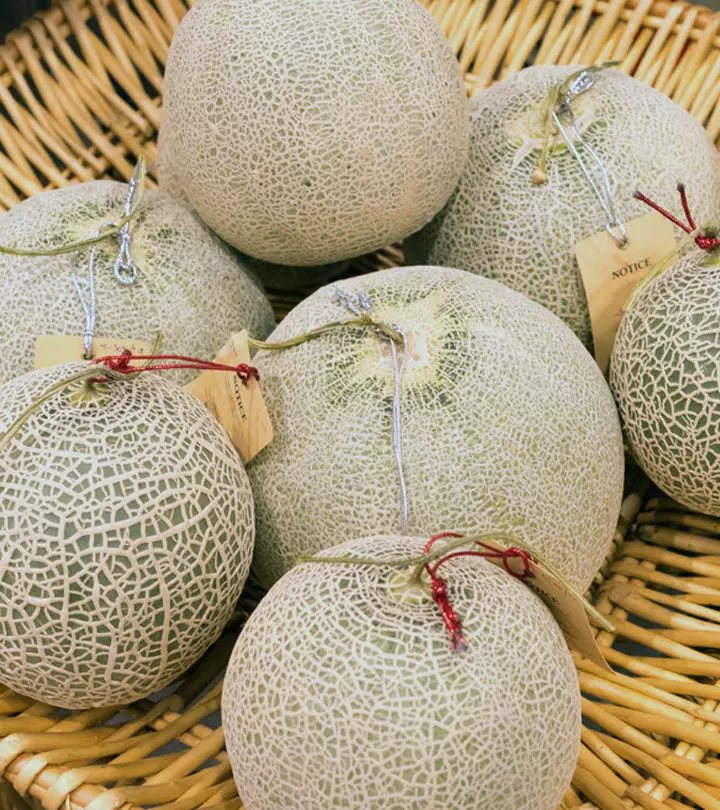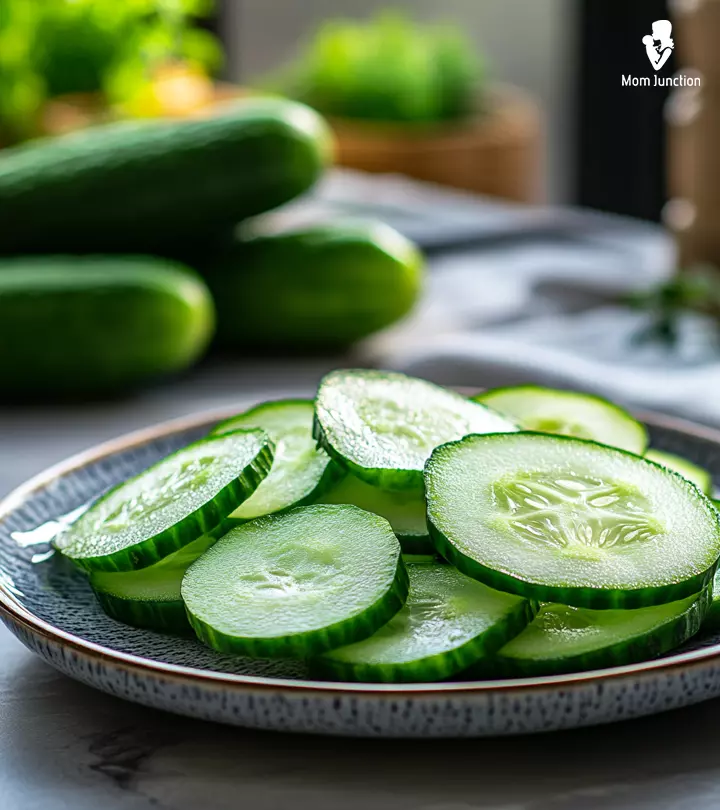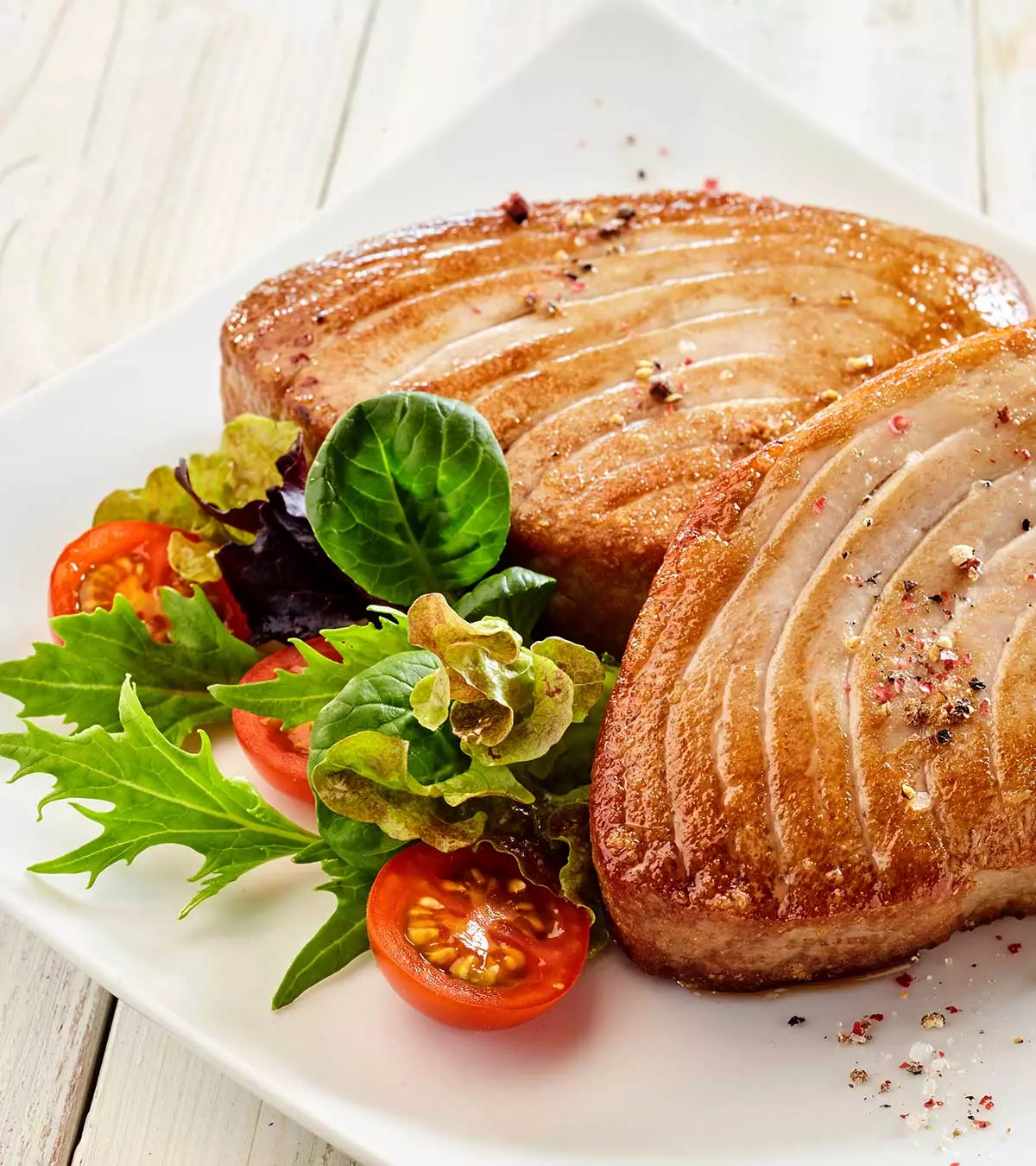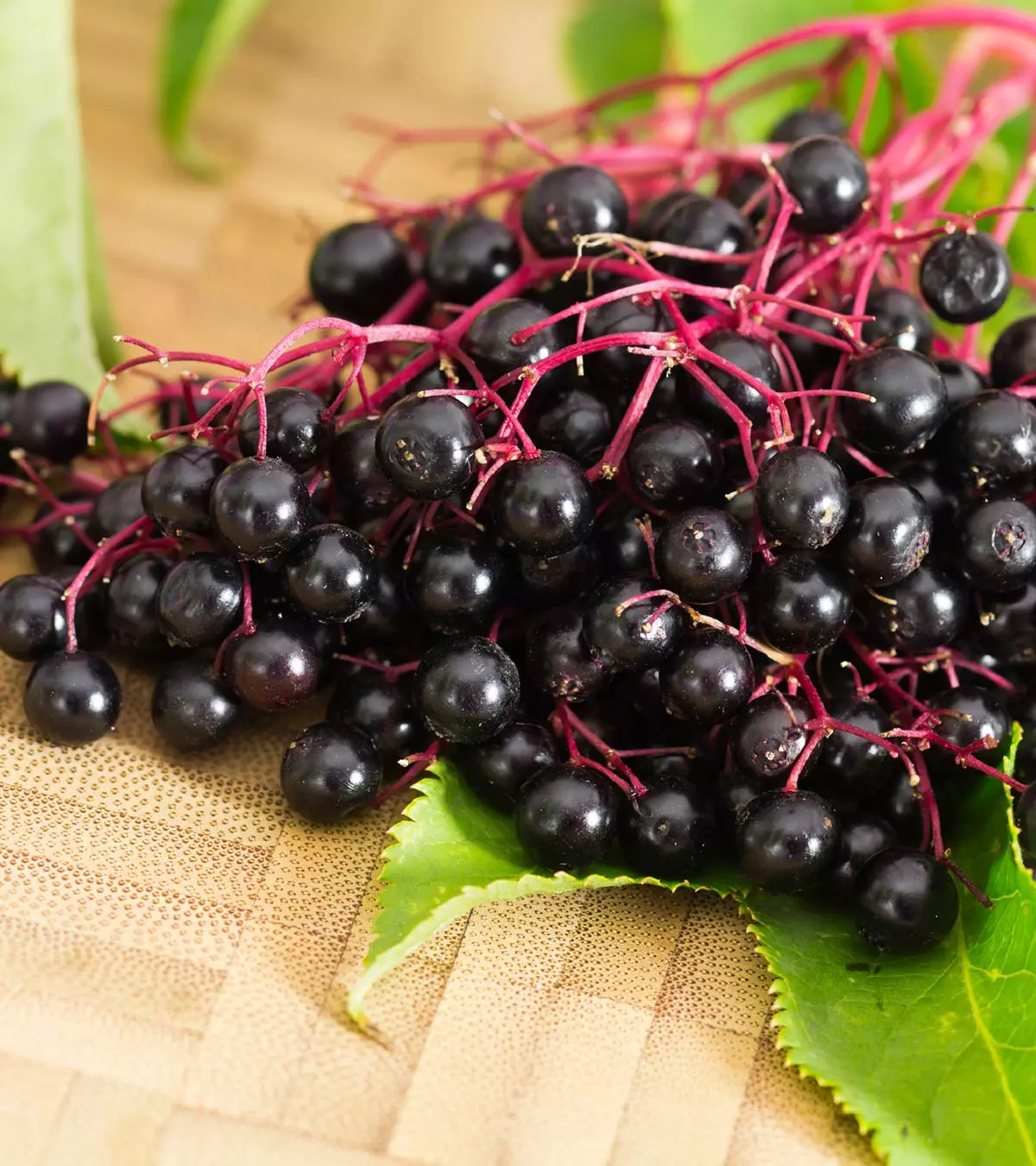
Image: Shutterstock
Cheese is a good source of protein and calcium during pregnancy and can aid your baby’s bone development (1). Therefore, goat cheese while pregnant could also be a healthy and delicious addition to your diet. However, take it with caution since there are restrictions on specific cheese. As with any cheese, be aware of its potential risks and follow some guidelines to ensure the safe consumption of goat cheese during pregnancy. Keep scrolling to learn about the safe and unsafe goat cheeses for pregnancy, the benefits, and tips to incorporate them into your meals as part of a healthy diet.
Key Pointers
- Pregnant women may eat goat cheese made from pasteurized milk.
- It is a good source of protein and calcium, which aids in a healthy pregnancy and fetal development by supporting uterine tissue growth and the baby’s brain and bone development.
- Unpasteurized and mold-ripened soft goat cheese may carry listeria and harm the pregnancy.
- It is essential to check the label for the pasteurization tag while buying goat cheese during pregnancy.
Can Pregnant Women Eat Goat Cheese?
Pregnant women may consume goat cheese as long as it is made from pasteurized milk and does not have a white coating or rind on the outside (2). However, if you have lactose intolerance or a history of allergic reactions to dairy products, it is best you avoid it.
Which Goat Cheese Is Safe During Pregnancy?

Image: Shutterstock
You may add a few types of goat cheese to your pregnancy diet due to their lower risk of bacterial infection. These include:
- Pasteurized goat cheese: This refers to the cheese made from pasteurized goat milk. Pasteurization lowers the count of harmful bacteria in the milk and increases its shelf life while retaining the nutritional benefits (3) (4).
- Hard goat cheese: Hard cheese made from pasteurized or unpasteurized milk contains less water, making it difficult for bacteria to thrive. Hence, it may be safe to eat while pregnant (5) .
 Caution
CautionWhich Goat Cheese Is Unsafe During Pregnancy?

Image: Shutterstock
To ensure food safety during pregnancy, you should not eat the following variants of goat cheese.
- Unpasteurized goat cheese: Consuming unpasteurized cheese made from raw goat milk may expose you to the listeria bacteria, leading to a potentially dangerous infection known as listeriosis. According to the US Food and Drug Administration, the risk of listeria infection is ten times higher for pregnant women than other individuals. Listeriosis may increase the risk of stillbirth and miscarriage and make your baby ill (6).
- Mold-ripened soft goat cheese: Pasteurized or unpasteurized surface mold-ripened cheese contains a coating of a fungus called Penicillium camemberti on its outer surface that gives it a distinctive taste and smell (7). The soft mold-ripened cheese has a higher moisture content, making it favorable for bacterial growth (3). Thus, it may have adverse health effects on the baby.
 Quick fact
Quick factHow Is Pasteurized Goat Cheese Beneficial During Pregnancy?
Considering its nutritional composition, goat cheese may have several pregnancy benefits when taken in moderation and improve maternal health. So, you may include it in your pregnancy diet after speaking to your health care provider during your prenatal care appointments:
- Goat cheese is a rich source of protein (8), one of the essential nutrients for pregnancy. Protein aids in fetal brain development and a healthy pregnancy body by increasing blood supply and supporting uterine tissue growth (9).
- Vitamin A in goat cheese may strengthen your immune system (10) (11). However, you should be careful not to exceed your daily vitamin A intake, as it may harm the baby (11).
- Goat cheese is also believed to possess antimicrobial activity against Group B Streptococcus (GBS) (12). Although rare, GBS may cause infection in pregnancy, leading to complications (13).
- Goat’s milk has shorter fat molecules than cow’s milk and thus may be easier to digest for some people who are lactose intolerant. This also explains why a few people may tolerate goat’s cheese better than cow’s cheese (14).
How To Buy The Right Type Of Goat Cheese?
When buying goat cheese for a pregnant woman, check the label and pick it if it says “made with pasteurized milk”(15)
. In addition, you may prefer to buy hard cheese instead of the soft variety. While buying the cheese, feel a difference in the texture of hard and soft cheese. Hard cheese is generally dry and crumbly (16).
How to Eat Goat Cheese When Pregnant?
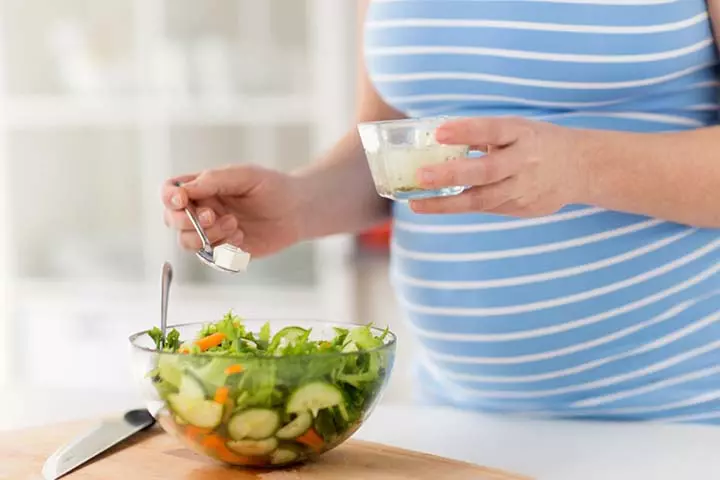
Image: Shutterstock
To reap the benefits of your cheese indulgence, you should know how to eat it right. Here are the tips to safely include goat cheese in your meals while pregnant.
- Pair the cheese with your favorite salad or vegetable dish by sprinkling some crumbs over it.
- A piece of salty goat cheese may go well with a sweet fruit of your choice.
- Satisfy your pregnancy cravings with a classic cheese and crackers snack.
- Use it in your homemade pizzas for a healthier cheese option.
Frequently Asked Questions
1. Can I eat baked goat cheese when pregnant?
Certain goat cheese, such as chèvre, are safe to eat only when thoroughly cooked (5). Since baking involves cooking at high temperatures, you may eat baked goat cheese during pregnancy.
2. Is Blaze pizza goat cheese pasteurized?
According to anecdotal data, blaze pizza is believed to use pasteurized goat milk for their goat-cheese pizza. But you may confirm with them before ordering yours.
3. Is goat milk safe to drink during pregnancy?
Pasteurized goat milk is generally safe for consumption during pregnancy since the pasteurization process kills any harmful bacteria or pathogens (17).
4. How much goat cheese can I eat while pregnant?
According to the Australian Dietary Guidelines for pregnancy, consuming around two and a half servings of cheese per day is considered safe during pregnancy. However, individual needs may vary, and you should consult a doctor for personalized advice on how much goat cheese you can consume while pregnant (18).
5. What are some alternative cheeses to goat cheese that are safe to eat during pregnancy?
Safe alternatives to goat cheese during pregnancy include fresh and well-cooked soft cheeses such as brie, ricotta, and camembert (18).
Pregnancy comes with certain food restrictions and cautions, and goat cheese is no expectation. However, you may safely enjoy moderate amounts of healthy pasteurized goat cheese while pregnant. It contains essential nutrients to support a healthy pregnancy journey and aid your baby’s overall growth and development. Ensure it is made from pasteurized milk to reduce the risk of foodborne illnesses and be mindful of the portion sizes for a healthy calorie intake.
Infographic: Goat Cheese To Eat And Avoid When Pregnant
Goat cheese is a versatile cheese that you can enjoy in different ways. However, it is essential to know the different goat cheeses and how they may affect pregnant women. This infographic discusses safe to eat and avoid goat cheeses and some handy tips to include in your diet. Illustration: Momjunction Design Team
Unlock the secrets of crafting delightful goat cheese in the comfort of your home! Simply follow the straightforward steps in this video, and in no time, you’ll relish the satisfaction of homemade goat cheese.
References
- An Essential Guide on What to Eat During Pregnancy.
https://www.fhcsd.org/prenatal-care/what-to-eat-during-pregnancy/ - Eating well in pregnancy.
https://www.nhsinform.scot/ready-steady-baby/pregnancy/looking-after-yourself-and-your-baby/eating-well-in-pregnancy - Foods to avoid in pregnancy.
https://www.nhs.uk/pregnancy/keeping-well/foods-to-avoid/ - Gulzar Ahmad Nayik et al.; (2021); Recent Insights Into Processing Approaches and Potential Health Benefits of Goat Milk and Its Products: A Review.
https://www.frontiersin.org/journals/nutrition/articles/10.3389/fnut.2021.789117/full - Pregnancy guide.
https://111.wales.nhs.uk/LiveWell/Pregnancy/FoodsToAvoid/ - Listeria (Food Safety for Moms-to-Be)
https://www.fda.gov/food/health-educators/listeria-food-safety-moms-be#:~:text=Facts,listeriosis%20than%20other%20healthy%20adults. - Henry-Eric Spinnler; (2017); Surface Mold–Ripened Cheeses.
https://www.researchgate.net/publication/316900217_Surface_Mold-Ripened_Cheeses - Cheese goat hard type 1 oz.
https://www.uhhospitals.org/health-information/health-and-wellness-library/article/nutritionfacts-v1/cheese-goat-hard-type-1-oz - Pregnancy nutrition.
https://americanpregnancy.org/healthy-pregnancy/pregnancy-health-wellness/pregnancy-nutrition/ - Suelma Ferreira do Oriente et al.; (2020); Retention of vitamin A after goat milk processing into cheese: a nutritional strategy.
https://www.ncbi.nlm.nih.gov/pmc/articles/PMC7550504/ - Vitamin A.
https://www.nhs.uk/conditions/vitamins-and-minerals/vitamin-a/ - Aimee M. Plante et al.; (2021); Investigating The Bioactive Properties of Cheese-Fruit Combinations Following In Vitro Digestion Using an Elderly Model.
https://www.foodandnutritionjournal.org/volume9number2/investigating-the-bioactive-properties-of-cheese-fruit-combinations-following-in-vitro-digestion-using-an-elderly-model/ - What are the risks of group B streptococcus (GBS) infection during pregnancy?
https://www.nhs.uk/common-health-questions/pregnancy/what-are-the-risks-of-group-b-streptococcus-infection-during-pregnancy/#:~:text=Most%20pregnant%20women%20who%20carrybut%20this%20is%20not%20common. - Lactose Intolerance and Goat Cheese.
https://www.sutterhealth.org/ask-an-expert/answers/lactose-intolerance-goat-cheese - People at Risk: Pregnant Women.
https://www.foodsafety.gov/people-at-risk/pregnant-women - Hard Cheeses.
https://www.sciencedirect.com/topics/agricultural-and-biological-sciences/hard-cheeses - The Dangers of Raw Milk: Unpasteurized Milk Can Pose a Serious Health Risk
https://www.fda.gov/food/buy-store-serve-safe-food/dangers-raw-milk-unpasteurized-milk-can-pose-serious-health-risk - Pregnancy and diet
https://www.betterhealth.vic.gov.au/health/healthyliving/pregnancy-and-diet
Community Experiences
Join the conversation and become a part of our nurturing community! Share your stories, experiences, and insights to connect with fellow parents.
Read full bio of Hannah Whittaker
Read full bio of Swati Patwal
Read full bio of Rebecca Malachi
Read full bio of Aneesha Amonz










